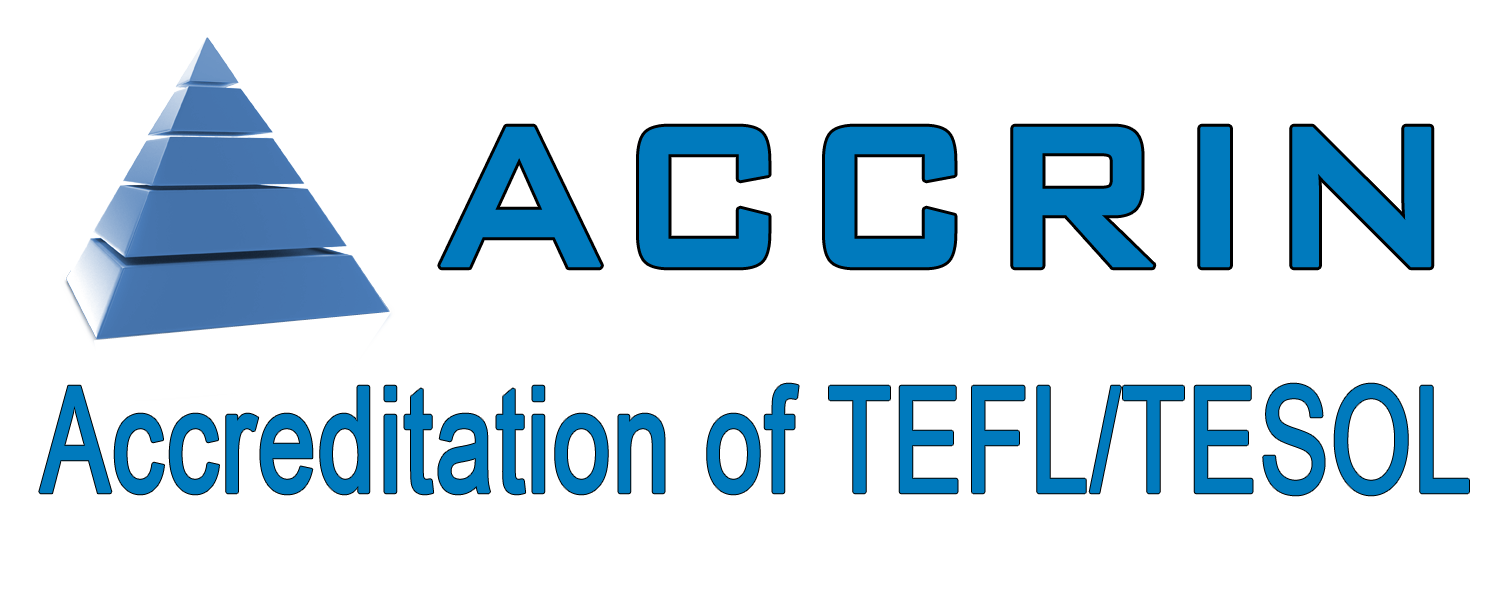Here are some points to mull over before choosing your TEFL/TESOL Provider and Course. Choice is dependent on individual needs and wants, so you need to make the choice.
However, there are 6 Points of Guidance which we feel we must make:
1. Ensure you choose a course accredited by a reputable accreditation body such as ACCRIN. View the list of our accredited Providers on the Clients page. Next, have a look at the ACCRIN Standards and Evidence page under TEFL/TESOL Providers. This will demonstrate to you the rigorous and demanding process that our accredited TEFL/TESOL Providers require to go through to achieve accreditation. Email us at [email protected] if you have any queries.
2. Choose an accredited Provider and ensure that you can get a certificate from your accredited Provider and a certificate from the accrediting body, such as ACCRIN. The certificate from the accreditation body is essential, as any employer who wishes verification/affirmation of the certificate will want to contact the accrediting body. Have a look at sample ACCRIN Certificates on the Sample Certificates page.
3. If you are new to TEFL/TESOL, it is wise to attend an accredited 20 hour or so face-to-face course first of all, if you can. Here you will have tutor support and you will have the great opportunity to put some of your learning into practice. After the course you can decide on your next steps. If you have any special needs, ensure your TEFL Provider can meet these needs before you register and pay for the course.
4. Again, if you are new to TEFL/TESOL, it is wise to consider a course which offers an array of practical exercises. In addition to helping to embed your learning, this will give you the necessary confidence to get up and running swiftly in your first TEFL/TESOL post.
Some Thoughts on Choosing Your TEFL/TESOL Provider and Course
1. The initial customer experience
When contacting the Provider initially, what’s your gut feeling? Does
the person at the end of the phone ‘know their stuff’? Do they take time
to answer all your queries? Do they ask if you have any special needs?
What do they say about accreditation? Are they accredited and by whom?
What’s their standpoint on face-to-face courses and distance and online
learning – do they cover them all or do they dismiss one type because
they do not offer it? What tutor support is available with distance or
online learning? What empathy and understanding is shown? You should
have a pretty good indication by the end of your call as to whether you
want to deal with them or not.
2. Provider credentials
Explore the Provider’s credentials. Are they accredited? By whom? Will the course and qualification level match your needs?
3. Your needs and wants
Deciding on the type of course is clearly down to individual choice,
needs and wants. If you are a person who likes to study with a tutor on
hand and likes to be part of a learning group, then a face-to-face
course is likely to be high on your list. However, if you have work or
family commitments and you are not too fazed about face-to-face tutor
support or being part of a learning group, a distance or online learning
course may just be right for you. In addition, if you have any special
needs, ensure your face-to-face TEFL Provider can meet these needs
before you register and pay for the course.
4. Pace
Pace is an important element. Do you prefer to go at the tutor’s pace or
your own pace? A face-to-face course will run to a set schedule but a
distance or online learning course will often give you the opportunity
to study at your own pace.
5. Cost
If this is an issue for you, then you need to consider the additional
travel and accommodation costs involved in attending a face-to-face
course. However, does this overcome the need to have your tutor on hand
and your desire to meet up with other Students?

